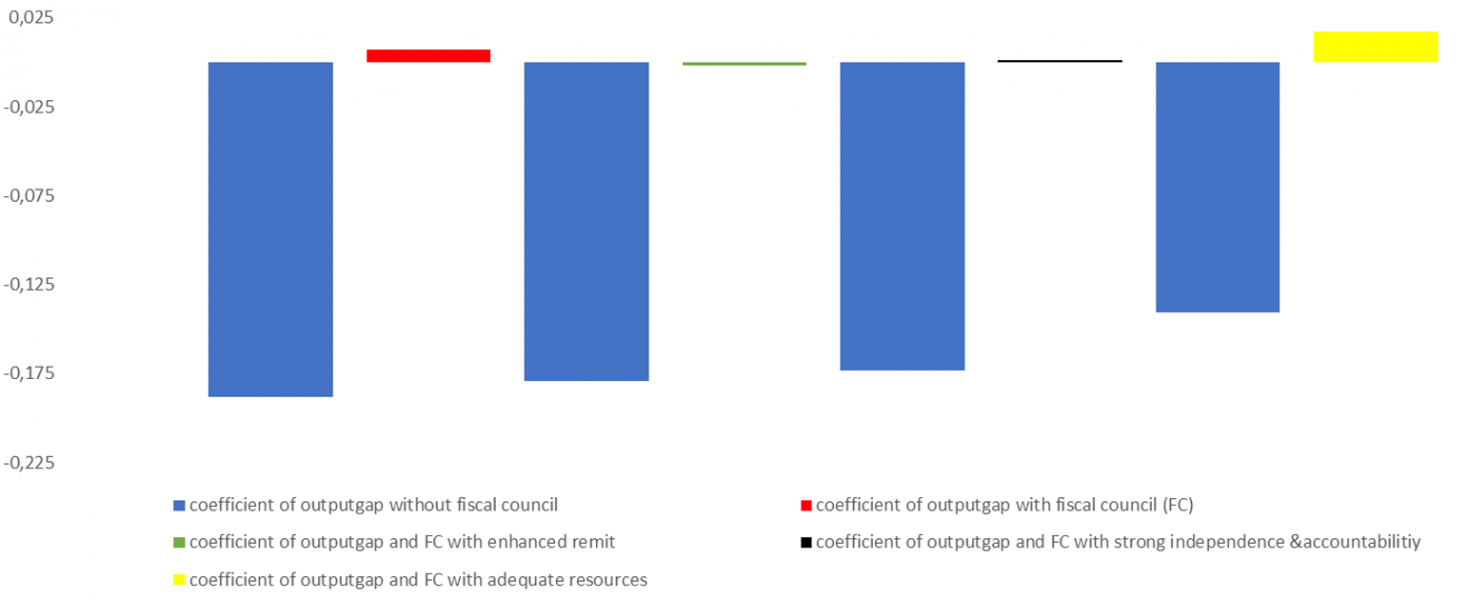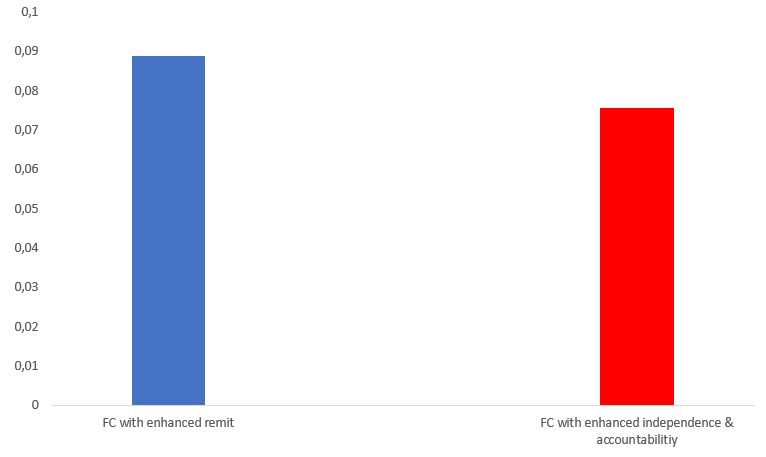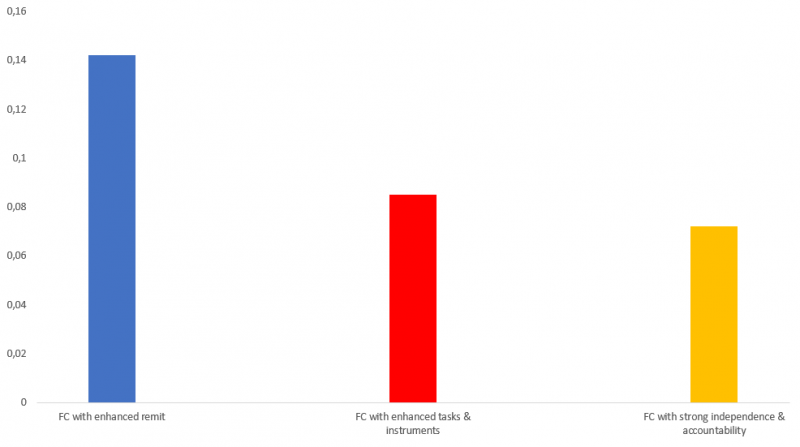References
Roel Beetsma & Massimo Giuliodori, 2010. “Discretionary Fiscal Policy: Review and Estimates for the EU,” CESifo Working Paper Series 2948, CESifo.
Beetsma, R. M. W. J., & Debrun, X. (2018). Independent Fiscal Councils: Watchdogs or Lapdogs? VoxEU eBOOK CEPR Press.
Beetsma, R., Debrun, X., Fang, X., Kim, Y., Lledó, V., Mbaye, S., & Zhang, X. (2019). Independent fiscal councils: Recent trends and performance. European Journal of Political Economy, 57, 53-69.
Beetsma, R., Debrun, X., & Sloof, R. (2022). The political economy of fiscal transparency and independent fiscal councils. European Economic Review, 145, 104118.
Căpraru, S. B., Georgescu, G., & Sprincean, N. (2022). Do independent fiscal institutions cause better fiscal outcomes in the European Union?.
Economic Systems, forthcoming March,
https://doi.org/10.1016/j.ecosys.2022.100973.
Chrysanthakopoulos, C., & Tagkalakis, A. (2022a). Do fiscal councils reduce fiscal policy procyclicality?
Applied Economics Letters, 1-4.
DOI: 10.1080/13504851.2022.2130142.
Darvas, Z., Martin, P., & Ragot, X. (2018). European fiscal rules require a major overhaul. Notes du conseil danalyse economique, (2), 1-12.
Davoodi, H. R., Elger, P., Fotiou, A., Garcia-Macia, D., Lagerborg, A., Lam, R., & Pillai, S. (2022). “IMF Fiscal Council Dataset: The 2021 Update”, International Monetary Fund, Washington, D.C.
De Jong, J. F., & Gilbert, N. D. (2020). Fiscal discipline in EMU? Testing the effectiveness of the Excessive Deficit Procedure. European Journal of Political Economy, 61, 101822.
Gootjes, B., & de Haan, J. (2022). Procyclicality of fiscal policy in European Union countries. Journal of International Money and Finance, 102276.
Jordà, Ò., & Taylor, A. M. (2016). The time for austerity: estimating the average treatment effect of fiscal policy. The Economic Journal, 126(590), 219-255.
Wiese, R., Jong-A-Pin, R., & de Haan, J. (2018). Can successful fiscal adjustments only be achieved by spending cuts? European Journal of Political Economy, 54, 145-166.







